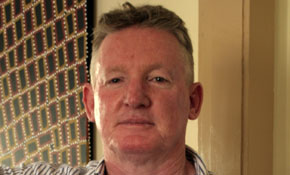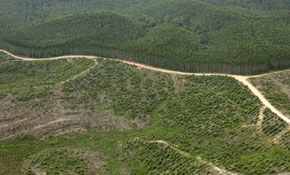
In my last column for ProPrint, I looked at the state of forest certification in Indonesia. It would be naïve to think I can write anything on forestry in Indonesia without people drawing connections between this and the work I do with that country’s biggest paper producer, Asia Pulp & Paper (APP). It’s fair for people to draw these connections, but I’d like to make my position clear.
Indonesia has been a key part of my research for many years. I go to Indonesia a lot. I study their industry, their poverty, their politics and their history. I can honestly put my hand on my heart and say I am trying to make a difference. If I can work with APP and the Indonesian government to develop and improve their outcomes I will do it. Without active solutions there is little hope of making things better in Indonesia. I have been researching this for a number of years and have a massive pile of academic reading material on the topic.
Many historical economists refer to the country as an “Unlikely Nation”. It exists in a geopolitically sensitive part of the world. After the Second World War, the British and the Dutch realised that over the next 100 years, China and Japan would become the economic engine of the world economy. Both the British and the Dutch knew that world trade would be between Europe and North America travelling east to Asia. This would mean that the vast majority of the world’s shipping would need to pass through the 19,000 islands that make up the Indonesian nation. Today about 75% of the world’s shipping travels towards and from China, once again all passing through the islands of Indonesia.
But on a global trade perspective, Indonesia hardly exists. It is not a big exporter or importer and so it does not have economic or political currency in global political discussions. For many vested interest groups, it is a convenient target to direct the world’s attention to in order to de-focus from other pressing environmental/political issues. If the attention is directed towards Indonesia and its big companies, such as APP, then there is less likely to be attention draw towards other countries and organisations that may be causing environmental issues.
People who criticise my connection to APP are absolutely right in regards to concerns about someone in my position being associated with an organisation. There is a long list of companies I would not want to associated with. The world’s best companies are just good storytellers with great marketing departments.
APP was born out of a specific period in Indonesia (the Suharto era) – that is an unavoidable fact of history. The company was an outcome of the period. This is a new period and I see the efforts they are going to, but still most people associate APP with the past.
Currently I am doing a lot of work in exploring the rigor of the Indonesian forestry certification and government strategic plan for forestry development. They have done a tremendous amount of work at a policy level since the Suharto years. However, the task is massive. The government has to draw back the power from local community leaders in order to establish a national control over policy. This task is hard enough in Australia where the federal government is continually at loggerheads with state governments on political power issues, so you can imagine what it would be like in a nation like Indonesia.
In regards to corruption, Indonesia is not alone in that issue. The US, UK, and other developed nations are just better at it, and more skilled and sophisticated. The linkage between politics and big business is well documented. There is no need I am sure to list the colourful examples over the past decade alone.
While I am associated with APP, my aims are genuine. While I openly admit to being paid for consultancy with APP among a list of other companies, including the United Nations, I do not represent APP at a commercial level. I am not interested in products or markets. What I am concerned with is a robust legitimate argument.
I welcome any feedback, so please leave your comments below or get in touch with ProPrint if you want to make contact.
Comment below to have your say on this story.
If you have a news story or tip-off, get in touch at editorial@sprinter.com.au.
Sign up to the Sprinter newsletter



